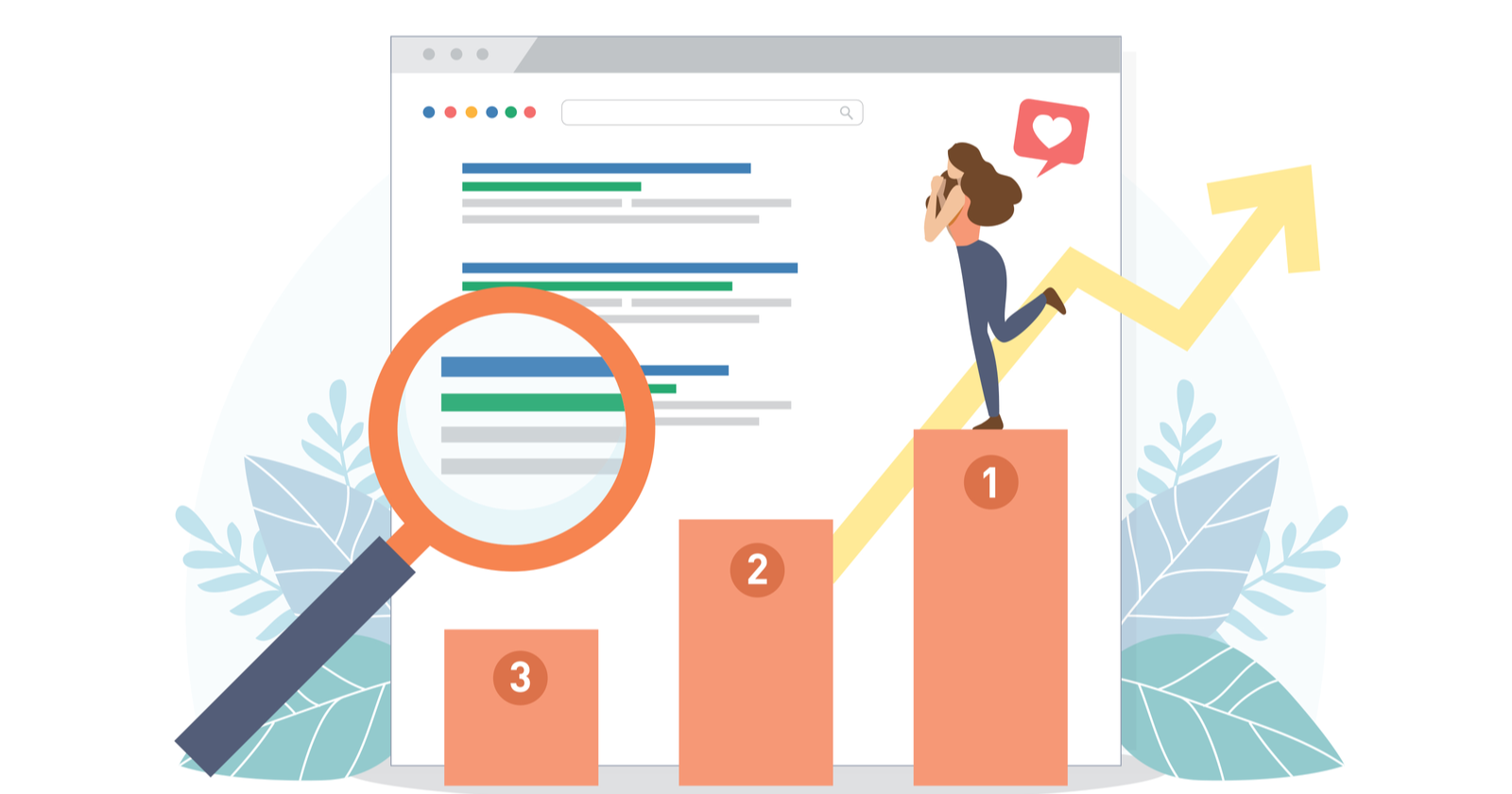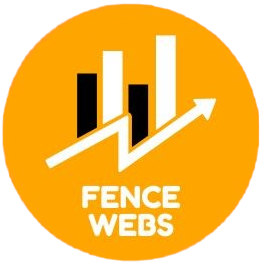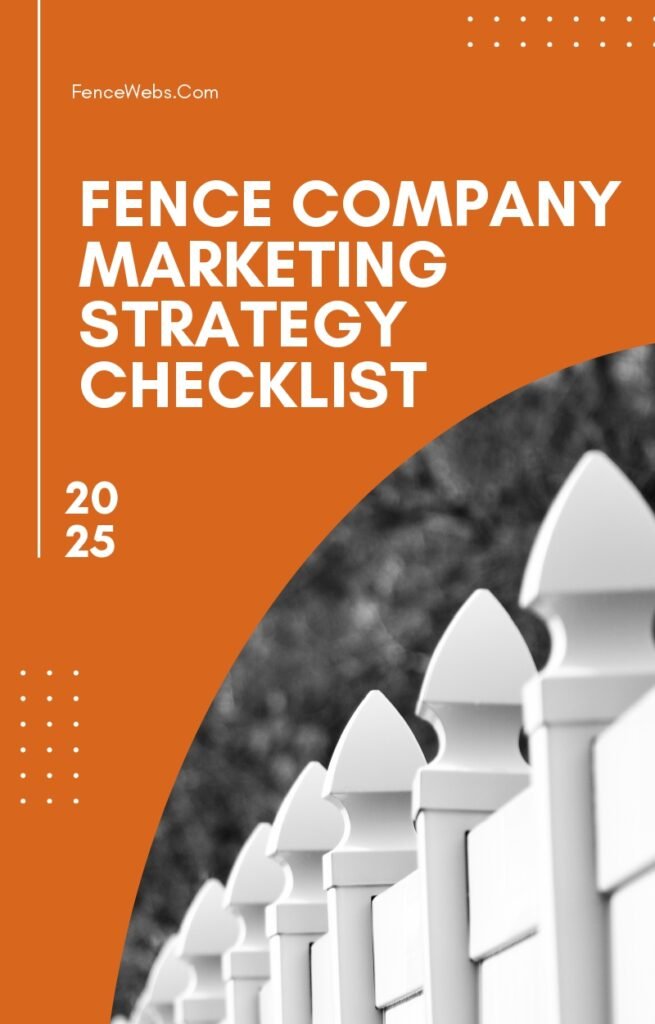Running a fence company isn’t just about putting up fences. It’s about knowing where your money goes, how customers find you, and what work gives you the best return. That’s where data comes in. Used right, it helps you avoid guessing and start making smarter choices.
Why Data Matters

You may not think of your business as “data driven,” but you already use data. When you check how many calls came from your Google listing or look at which jobs paid the most, that’s data in action.
Data doesn’t have to be fancy or hard to understand. It’s just information. And when you track it, patterns start to show. Those patterns can tell you what’s working and what’s wasting your time.
What Kinds of Data You Should Track
You don’t need to track everything. Just focus on what helps you make better choices. Here are a few types of data to start with:
1. Leads
- How many leads do you get each week?
- Where are they coming from? (Google, Facebook, referrals, etc.)
- Which ones turn into paying jobs?
2. Jobs
- What kinds of fences are you building most often?
- Which jobs take longer than expected?
- What jobs have the highest profit margins?
3. Customer Feedback
- Are people happy with your work?
- What do they complain about?
- How often do they leave reviews?
4. Website Traffic

- How many people visit your site?
- What pages do they spend time on?
- Do they fill out your contact form or bounce away?
5. Ad Performance
- Are you getting calls from your Google or Facebook ads?
- How much does each lead cost you?
- Are those leads turning into jobs?
How to Track This Stuff Without Losing Your Mind
You don’t need a giant dashboard or a full-time tech person. Start simple.
- Use a spreadsheet to list your weekly leads and where they came from.
- Use your CRM (if you have one) to see what jobs came from what sources.
- Check your Google Business Profile weekly.
- Look at Google Analytics for your website. It’s free.
- Facebook and Google Ads have built in tools to track clicks, costs, and conversions.
What the Data Can Tell You
Let’s say you spend $500 on Facebook ads in a month. You get 20 leads, but only 2 turn into jobs. Each of those jobs brings in $3,000.
Now compare that to Google Ads. You spend the same $500, get 10 leads, but 5 of them turn into jobs.
Even though Facebook brought more leads, Google gave you more jobs. That’s the kind of clear answer data gives you.
Stop Guessing. Start Testing.
If you’ve ever said, “Facebook ads don’t work,” but never tracked them, how do you know?
Instead of deciding something’s a waste, try this:
- Run one ad campaign for 30 days.
- Track how many leads you get.
- Track how many jobs you close.
- Calculate how much each lead cost.
- Do the same thing next month with a different ad type or message.
Now you’re testing. Not guessing.
Use Data to Price Jobs Right
Most fence contractors undercharge because they “go with their gut.” That’s risky.
Track how long each type of job takes. Include travel, materials, labor, and time spent quoting. Over time, you’ll get a clear view of which jobs are worth it.
Example:
| Fence Type | Avg Hours | Avg Material Cost | Avg Profit |
|---|---|---|---|
| Wood Fence | 12 hrs | $1,200 | $1,000 |
| Chain Link | 9 hrs | $900 | $700 |
| Vinyl Fence | 14 hrs | $1,800 | $1,400 |
This kind of table helps you price better. You can also use it to train your sales team or help customers see what they’re paying for.
Data Can Help You Grow Smarter
If you want to grow, data helps you see where to put your time and money.
Let’s say you’re getting a lot of traffic to your website, but no one’s calling. That tells you your site might need better calls to action or faster load times.
Or maybe you’re getting 10 calls a week from your Google Business Profile, but only one review a month. That could mean it’s time to ask more happy customers to leave reviews.
Local SEO and Google Business Profile
Your Google Business Profile (GBP) can be a goldmine. But only if you track and tweak it.
- Keep your hours and info updated.
- Post weekly updates or photos.
- Reply to reviews, even the bad ones.
- Track how many people click “Call” or “Website” from your profile.
This helps you show up more often in local searches. It also builds trust.
Your Website is a Tool, Not a Billboard
Your website isn’t just there to look pretty. It should help people decide to call you.
Track:
- How many people visit each page
- How many fill out the contact form
- How long they stay on each page
If no one clicks your “Get a Quote” button, try changing the color or wording. Small changes can make a big difference.
What About SEO?

Search engine traffic (organic ranking) is free if you earn it.
Track:
- What keywords bring people to your site
- What pages rank on Google
- How much of your traffic comes from search vs. ads
The goal is to show up when someone types in “fence company near me.”
Use this info to know what to write about on your blog or FAQ page.
Real Talk: Don’t Try to Do It All at Once
Start with one thing. Maybe it’s tracking where leads come from. Or reviewing ad results each week.
As you get used to that, add another layer. Over time, you’ll build a clearer picture of what’s working and what’s not.
If you try to track everything all at once, you’ll burn out. Keep it simple. Then grow from there.
A Final Word
Data isn’t just for big companies. It’s for any fence contractor who wants to run a tighter ship.
When you stop guessing and start tracking, you get answers. And with those answers, you can make better calls.
At FenceWebs, we help fence companies use data to grow smarter. But even if you never hire us, we hope this helped you think about your numbers a little differently.
Keep building. And keep tracking.








